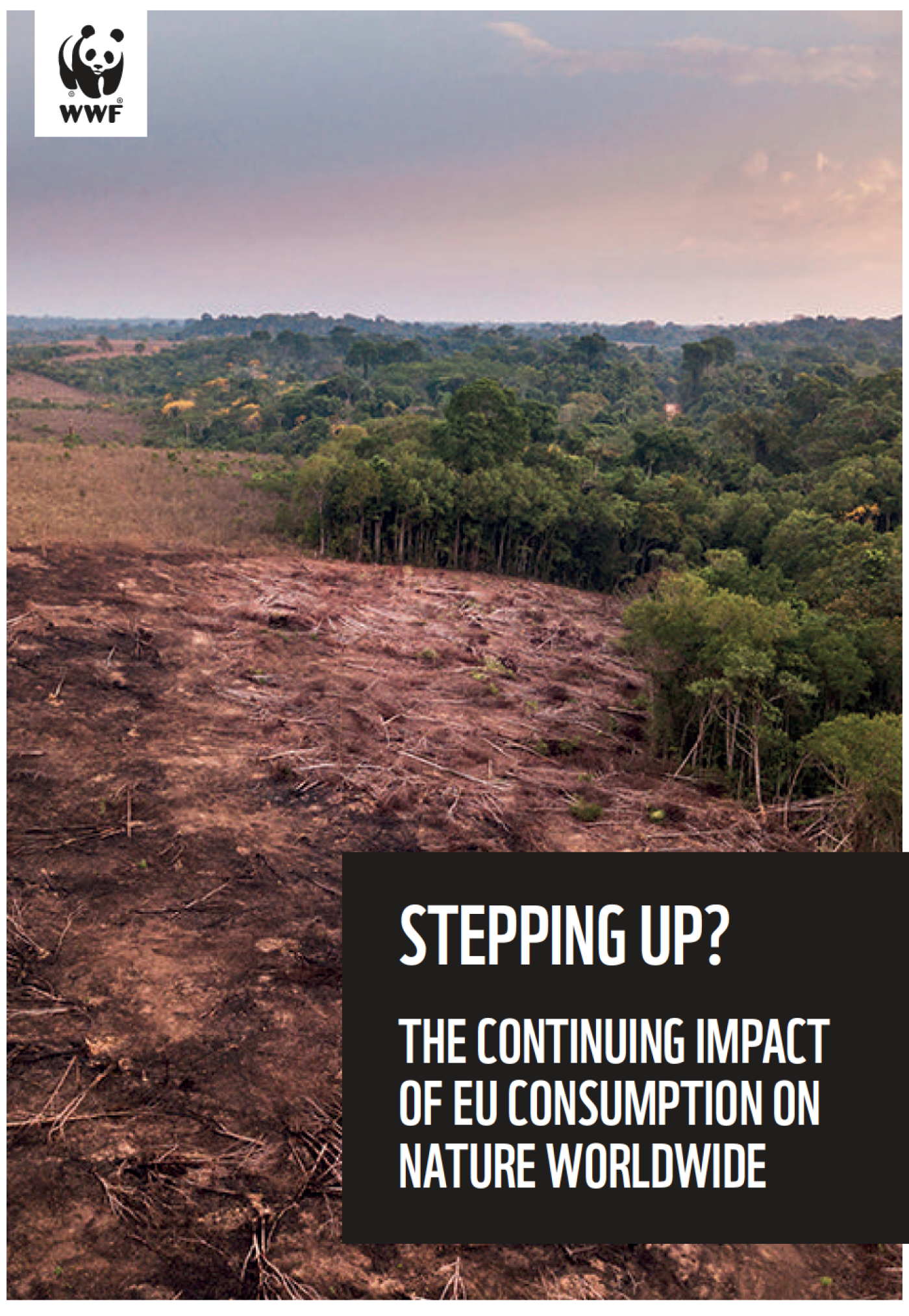Stepping up? THE CONTINUING IMPACT OF EU CONSUMPTION ON NATURE WORLDWIDE
Around the world, forests and other natura ecosystems like grasslands, wetlands and savannahs continue to be destroyed at an alarming rate. This contributes to climate change and the loss of biodiversity and the vital services that nature provides.
The expansion of agriculture in tropical regions remains the biggest threat to forests and other natural ecosystems, leading to the conversion of around 5 million hectares of forests into agricultural land per year between 2005 and 2017. Because the agricultural commodities that drive tropical deforestation and ecosystem conversion are traded internationally, tackling the problem is not just the responsibility of producing countries: importing countries also need to take action. The EU is taking measures to address deforestation and other environmental and human rights impacts of its consumption.
This report aims to support these efforts by providing new data and insights on the EU’s role in driving deforestation and conversion through the import, use and consumption of key agricultural commodities. The data referenced in this report covers the period 2005-2017, preceding the withdrawal of the United Kingdom from the EU. As such, all data concerning EU imports includes the United Kingdom.
The EU is the second largest importer of tropical deforestation and associated emissions. It caused more deforestation than any other country through its imports of agricultural commodities between 2005 and 2013, before being surpassed by China in 2014. Between 2005-2017, EU imports caused 3.5 million hectares of deforestation, emitting 1,807 million tonnes of CO2. This is equivalent to 40% of the EU’s overall annual emissions. Though deforestation associated with its imports fell steadily by around 40% between 2005 and 2017, the EU was responsible for 16% of deforestation associated with international trade in 2017, totalling 203,000 hectares and 116 million tonnes of CO2. This puts it after China (24%) but ahead of India (9%), the USA (7%) and Japan (5%). Soy, palm oil and beef were the commodities with the largest embedded tropical deforestation imported into the EU, followed by wood products, cocoa and coffee. Embedded deforestation was greatest for imports from Brazil, Indonesia, Argentina and Paraguay.


